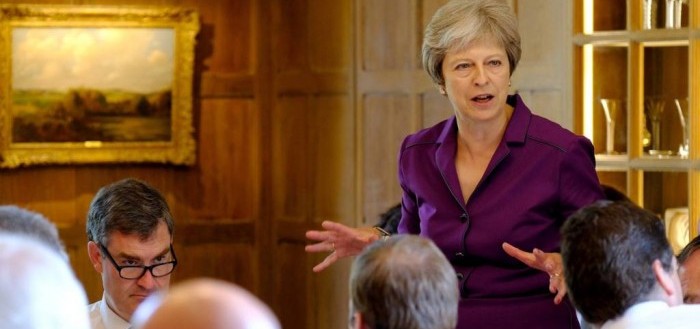The NPA and NFU have welcomed Brexit agreement reached by the cabinet that would retain most of the current EU rules on agricultural goods.
The cabinet reached ‘collective agreement’ on Friday at the Prime Minister’s country residence at Chequers on a future relationship with the EU after Brexit – only for the Government to be shaken by the resignation of Brexit Secretary David Davis late on Sunday. He was replaced on Monday morning by Housing Minister Dominic Raab, who also campaigned for leave in 2016.
To the dismay of the Government’s leading Brexiteers, the deal would retain a ‘common rule book’ on goods and close trading relationships with the EU, but would potentially make it harder to forge new trade deals with third countries.
Mr Davis’ resignation highlights the challenge still facing Theresa May to get the policy signed off at home, let alone agreed with the rest of the EU over the next few months. However, for the first time, it nails the Government’s colours to the mast on some key issues, including:
- A treaty will be signed committing the UK to ‘continued harmonisation’ with EU rules – avoiding friction at the UK-EU border, including Northern Ireland.
- Parliament will oversee the UK’s trade policy and will have the ability to ‘choose’ to diverge from the EU rules.
- The borders between the UK and EU will be treated as a ‘combined customs territory’.
- The UK would apply domestic tariffs and trade policies for goods intended for the UK, but charge EU tariffs and their equivalents for goods which will end up in the EU.
- The UK would be able to ‘control its own tariffs for trade with the rest of the world’ without causing border disruption.
- Although free movement of people will be ended, a ‘mobility framework’ will be set up to allow UK and EU citizens to travel to each other’s territories, and apply for study and work.
Industry reaction
NPA senior policy advisor Ed Barker said: “While there is still a long way to go before any of this is translated into a final deal, the building blocks put in place in the Chequers agreement give us cautious grounds for optimism.
“It is a good outcome for the food and farming sectors as we want alignment with the EU to ensure, as far as possible, free trade with the remaining member states continues as far as possible after we leave the EU.
“It is encouraging that the need for continued migration, both ways, between the UK and EU has been recognised. Access to EU workers is a critical post-Brexit issue for the pig sector.
“We also welcome the fact that the arrangement still leaves scope for new trade deals and export opportunities, while ensuring standards do not deviate too far from EU rules.
“While many see this as the death of new trade deals, it in no way inhibits developing closer ties on a bilateral basis out of the scope of an FTA, as is the case, for example, with our current Chinese pork trade. This co-operation can continue with new trading partners who are relevant to our export markets.
“However, the events of the past 24 hours highlight the task ahead for the Government to secure a meaningful deal with the EU in the limited time available.”
NFU president Minette Batters said: “I’m pleased that the Cabinet has agreed to propose to the EU a free trade area for goods including a common rulebook for all goods including agri-food.
“Although the details of this future free trade area remain to be agreed, on the face of it the government’s proposal is critical to avoiding friction at the border, which is vital if we are to maintain the high levels of trade in agricultural goods between the UK and the EU, our largest market for agri-food products.
“The NFU has argued strongly since the EU referendum that maintaining as free and frictionless trade as possible between the EU and the UK post-Brexit will be critical if British farmers are to continue to play their part in providing high quality and affordable food to the British public, as well as to deliver the environmental goods increasingly expected of us. It is good to see our arguments have been listened to.
“We are grateful that the Prime Minister seems to have made a significant breakthrough in achieving a Brexit deal that will give British farmers the certainty to plan properly for our post-Brexit future.”




